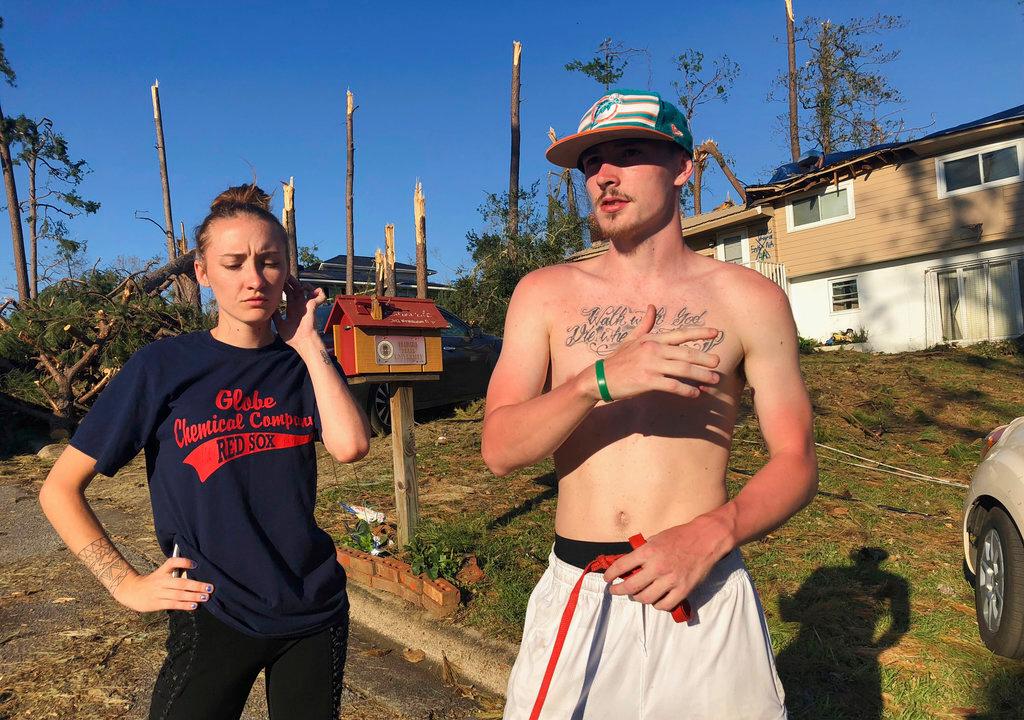MARIANNA, Fla.—Haylie Byler and her husband were just beginning life in their new home when Hurricane Michael’s monstrous winds mowed down a dozen trees on their property, more than an hour’s drive inland from where the storm made landfall.
They had made only one house payment and no payments yet on his new truck when Michael toppled a tree onto the dwelling, another onto the truck and a third on their other car. For four days, Byler had to climb over huge pine tree trunks to get in and out of her home.





